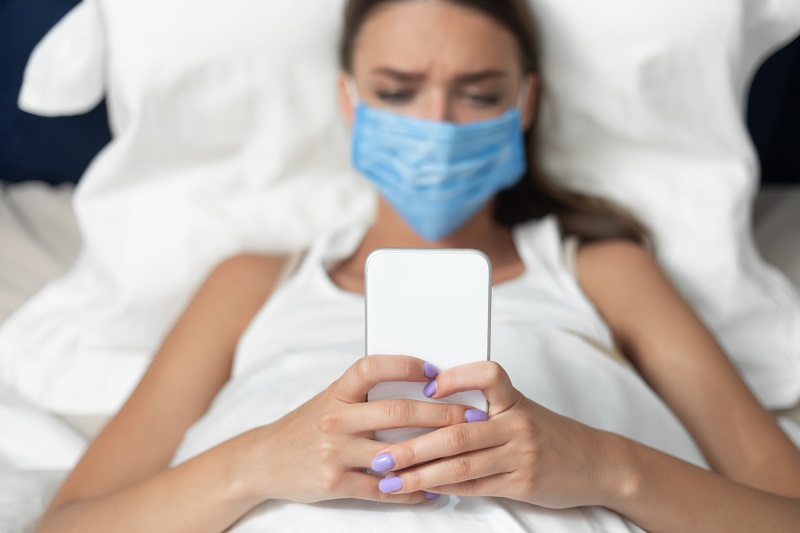
According to a survey published Thursday which shows how the COVID-19 pandemic has escalated into a nationwide psychological epidemic, almost half of the people in the United States believe the coronavirus outbreak is damaging their mental health.
The Kaiser Family Foundation’s tracking poll, conducted March 25-30, found that 45 percent of adults report the pandemic has impacted their mental health, and 19 percent say it has had a “significant effect.” The survey found rates are marginally higher among women, Hispanic adults, and black adults.
The survey makes one thing clear: You’re not alone whether you’re afraid, nervous, stressed, unable to sleep through the night, or just on the edge.
“It’s a huge number,” Kathy HoganBruen, a Washington clinical psychologist specializing in anxiety disorders, said in response to the poll results.
She added, “It’s not surprising given all the other huge numbers surrounding the pandemic in terms of joblessness, and social distancing, which can equal social isolation. And people dying. People getting sick. . . . All of these big numbers are going to have an outsized impact on our mental health collectively.”
Mental health experts claim it is common for people to feel anxious and worried in the midst of a highly volatile health emergency that is shot through with uncertainties.
“Given the circumstances, feeling anxious is part of a normal response to what’s going on,” said Joshua Gordon, director of the National Institute of Mental Health, after reviewing the poll numbers Thursday.
He offered several strategies for dealing with it. An easy one: write your fears down on a sheet of paper or on a device (computer, phone).
“Just the act of writing them down and stepping away from them can really help you, number one, crystallize what your concerns are, and then number two, leave them behind on the paper or the computer file,” Gordon said.
“Another way, of course, is to communicate them to another caring person. In sharing our fears that has a number of effects. You often learn that that caring person also has those fears and worries,” he said.
HoganBruen urged people to strive to minimize unhealthy habits, such as heavy alcohol consumption or overeating and to concentrate on coping strategies that worked in the past.
“Think about what makes you feel better, what helps improve your mental health, and how you can do that with such limited resources right now. Think about social support — how to access friends and family online, to reach out to people, and develop new communities if you didn’t have that before. How to get exercise,” she said.
Joshua Morganstein, president of the Committee on the Psychological Aspects of Tragedy at the American Psychological Association, echoed Gordon’s opinion that it is normal for people to experience tension.
“It’s also important to remember that the vast majority of people, including all of us who are experiencing difficulties along the way, will ultimately do well,” Morganstein said. “Finding and sharing creative solutions to the problems people are facing, taking care of ourselves and our families in the best way we are able, and staying connected to one another will remind us we are in this together and help us get through this difficult time.”
The poll isn’t a screening method for mental health surveys. A sense of anxiety meets the criteria for a disorder if it interferes with normal functioning, Gordon said, for instance, when “it prevents people from being able to go out to the store when they need to buy groceries, or clean their home, or get the mail, or something like that.”
The poll from the Kaiser Family Foundation showed that 57 percent of adults said they were worried that they would be exposed to the virus because they can not afford to miss work and can not stay home. That’s up from 35 percent two weeks earlier.
The fear of infection has significantly diminished. Two weeks ago, 62 percent of respondents said they were concerned that someone in their family would get sick with the virus, and that fell to 53 percent— a potential indication that people believe the national campaign to isolate themselves from society is lowering their household risk.











































